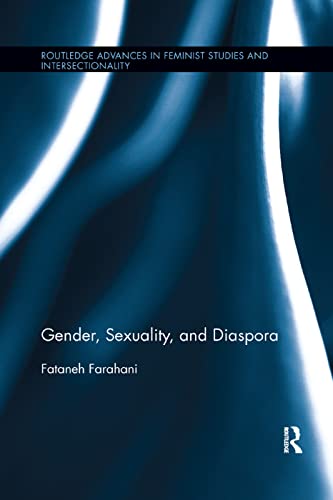Gender, Sexuality, and Diaspora
Gender, Sexuality, and Diaspora is backordered and will ship as soon as it is back in stock.
Couldn't load pickup availability
Genuine Products Guarantee
Genuine Products Guarantee
We guarantee 100% genuine products, and if proven otherwise, we will compensate you with 10 times the product's cost.
Delivery and Shipping
Delivery and Shipping
Products are generally ready for dispatch within 1 day and typically reach you in 3 to 5 days.
Book Details
-
Author: Farahani, Fataneh
-
Brand: Routledge
-
Edition: 1
-
Binding: Paperback
-
Number Of Pages: 172
-
Release Date: 23-05-2019
-
ISBN: 9780367350963
-
Package Dimensions: 9.2 x 6.1 x 0.4 inches
-
Languages: English
About the Book
Gender, Sexuality, and Diaspora by Fataneh Farahani offers a compelling exploration of the intersections between gender, sexuality, and diaspora, particularly through the lens of Iranian immigrant women in Sweden. This book sheds light on how first-generation Swedish Iranians navigate and negotiate the complex dynamics of cultural, political, and religious discourses that shape their lives, particularly regarding their sexuality.
Farahani presents a nuanced analysis of the hybrid experiences of these women, focusing on the tensions between societal expectations and personal coping strategies. The study highlights how women's bodies are self-disciplined within the constraints of cultural norms, while at the same time, these women actively engage in challenging and redefining their roles.
Through this, Gender, Sexuality, and Diaspora emphasizes the profound impact that migration has on sexual identity and vice versa. The book offers fresh perspectives on the construction of diasporic femininities and sexualities in the context of global migration, contributing significantly to the understanding of diaspora studies.
With its rich empirical data and theoretical insights, this book is essential reading for students and scholars of gender studies, sociology, sexuality studies, diaspora studies, and Middle Eastern studies. It provides valuable contributions to the broader discourse on migration and sexual identity, offering a new framework for understanding the complex relationships between culture, identity, and gender in the contemporary world.





